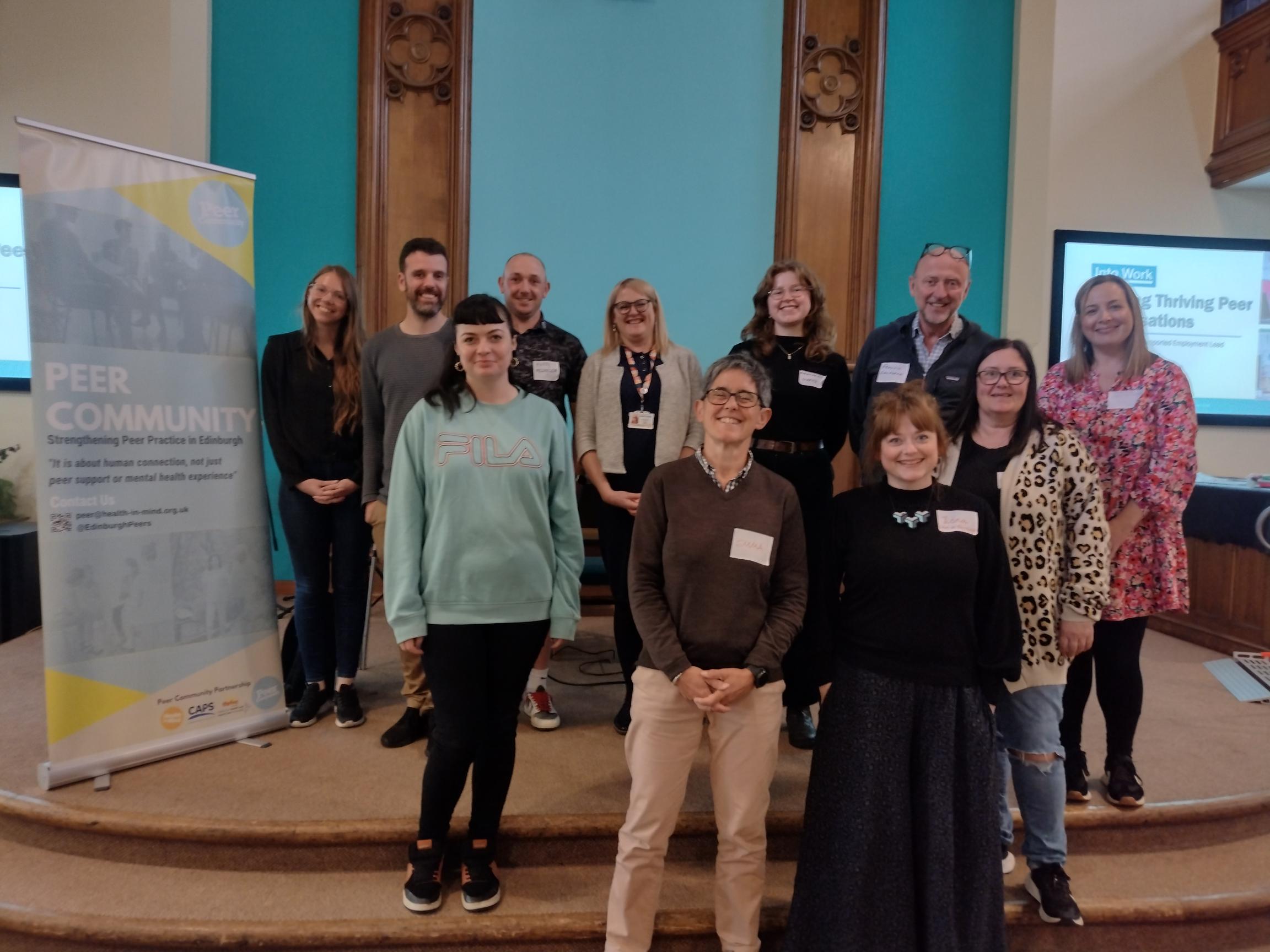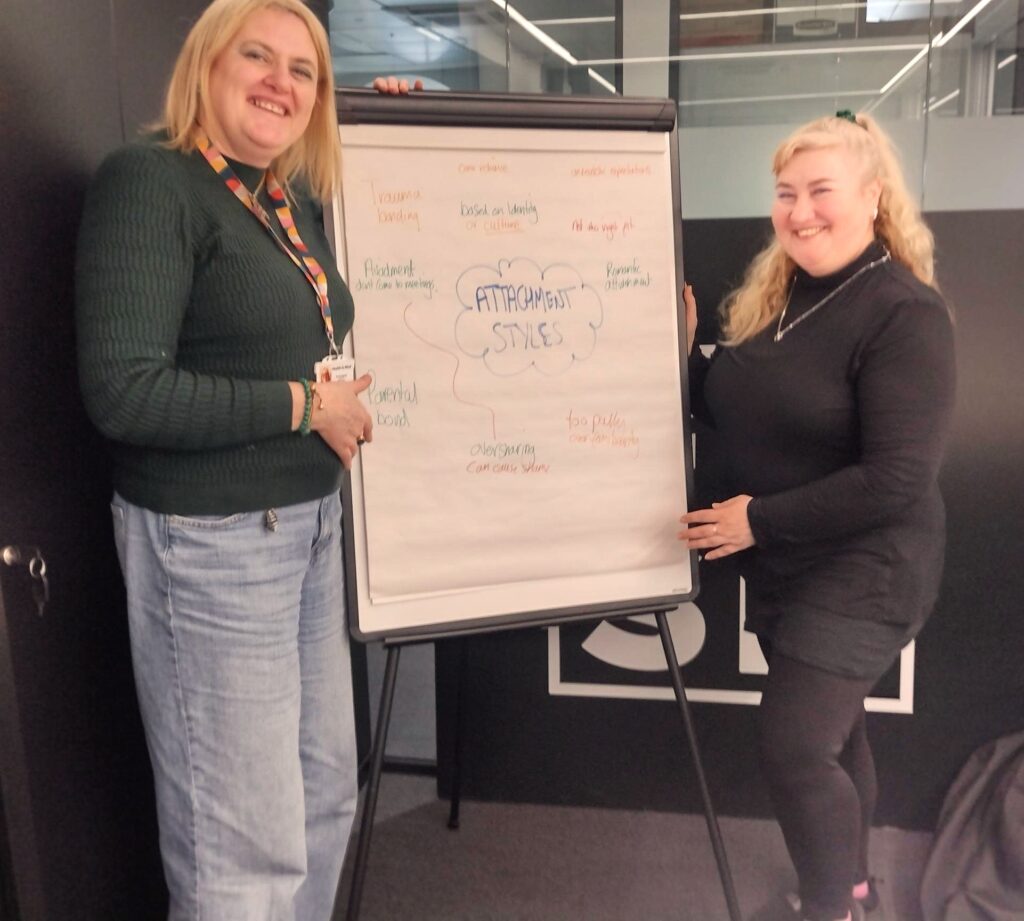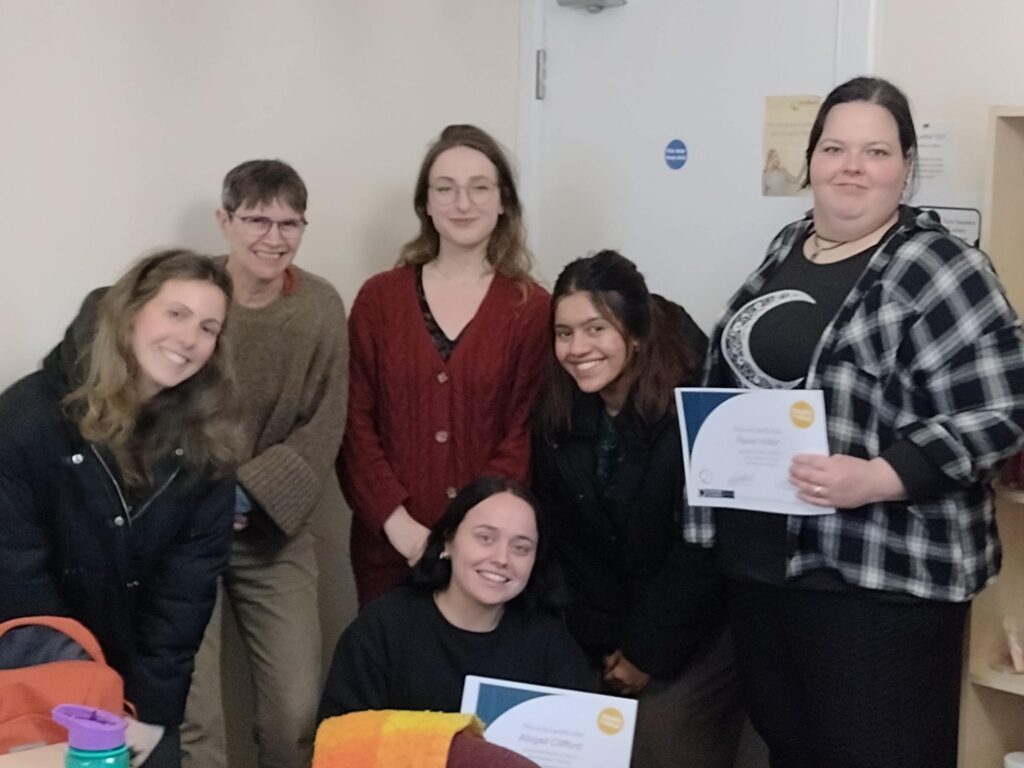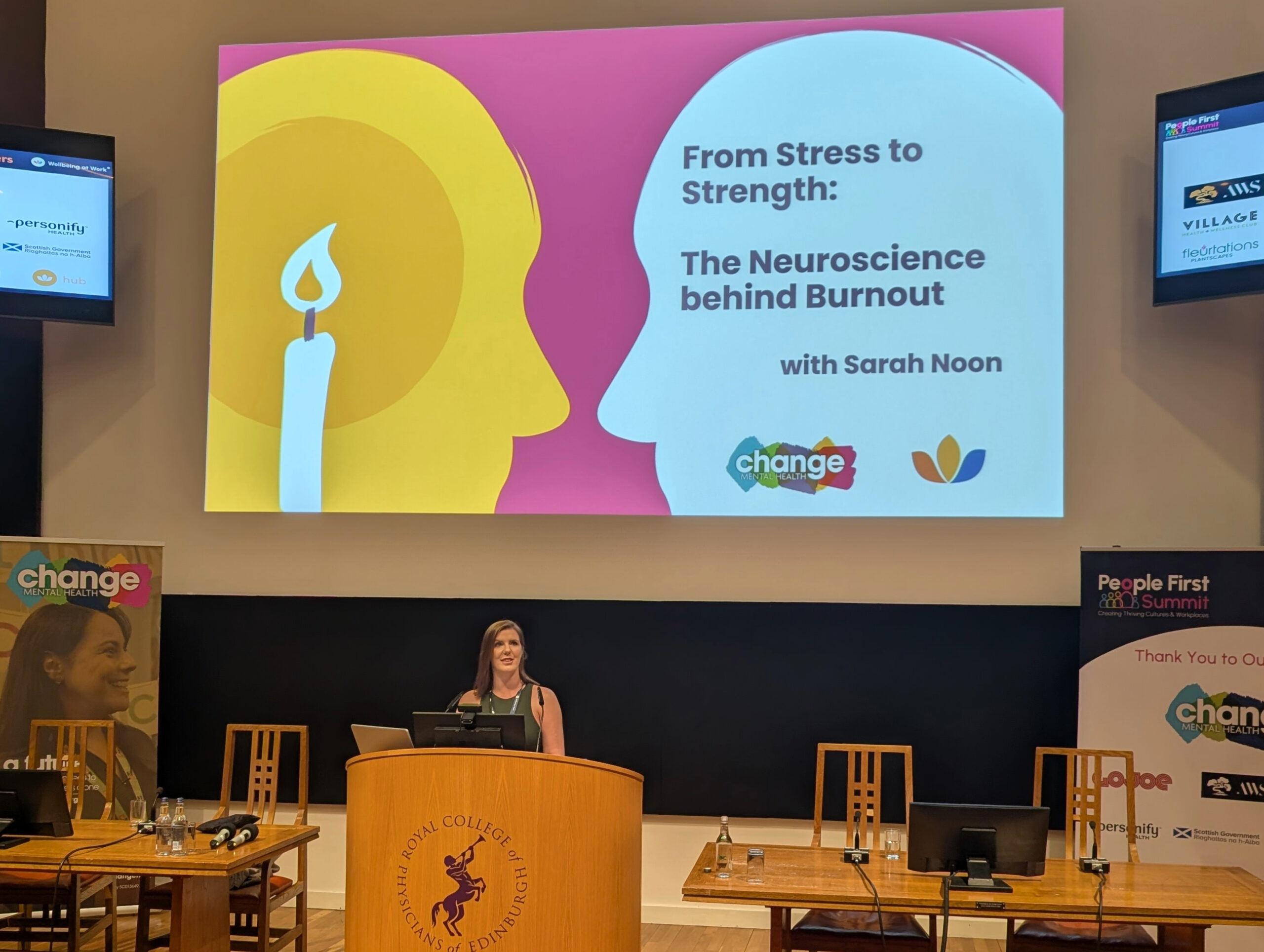Embedding peer support in community practice
From shared stories to lasting change, explore how peer support is shaping stronger, more connected mental health communities.

What does it mean to belong somewhere? To be among people who understand without needing everything explained? Peer support doesn’t follow a script. It doesn’t sit behind a desk or require qualifications, but it can be the difference between feeling isolated and understood; between staying silent and speaking, sometimes for the first time.
In Edinburgh, the Peer Community of Practice is creating the space for that kind of support to grow. The Peer Community of Practice is supported through a partnership between Health in Mind and CAPS Independent Advocacy as part of Thrive Edinburgh. It’s driven by the people who take part in it: those who offer peer support in formal or informal ways and those who understand its value because they’ve experienced it themselves.
It’s not one organisation or service, but a network of peer workers, volunteers and people who offer and receive support through shared experience. What brings them together isn’t a job title; it’s lived experience and a commitment to being alongside others through theirs.
“I wouldn’t be where I am today without the peer approach,” says Callum O’Brien, a Peer Worker with Change Mental Health’s Signature Project. “Peer support is important in recovery. It helps people by showing that you are not alone in your struggles. It helps them to see that you can move on and have a fulfilling life.”
a community grounded in trust and lived experience
The Signature Project was developed to support men experiencing Post-Traumatic Stress Disorder (PTSD). From the beginning, peer support was at its heart, not as a service model, but as something led by those taking part.
“One man who was key to the initial planning said that he wanted a space for ‘connection, communication and honesty’,” recalls Emma Young, Locality Manager at Change Mental Health. “So, this is what staff built with the facilitators, both of whom had lived experience of trauma.”
The facilitators leading the group had lived experience of trauma. That was intentional. It wasn’t about offering clinical answers but about creating a space where difficult things could be shared without judgement.
“It was one of the most challenging projects I’ve ever been part of,” Emma says. “We were doing something completely new – building a place of growth and safety where men could speak about their experiences.”
The impact was immediate and lasting.
“One long-term service user who had been abused in care said it was the first time he had told other men about what happened to him and how empowering it was to be fully heard by his peers.”
That group laid the foundation for others, including a creative writing group, a social group and the recruitment of a paid Peer Worker.
For Emma, the direction of travel is clear: “I hope that peer support becomes a principle that is embedded in every mental health service in Edinburgh and across Change Mental Health.”
learning from one another
Peer support is built on shared understanding but it also requires care, structure and support – especially for those facilitating it. For Emma Morrow, Advice and Support Service Manager at Change Mental Health, that starts with listening to those already doing the work.
“While developing pathways and facilitation guides for peer support within mental health sectors, I wanted to be sure I utilised the experience of those groups and individuals who were already practicing peer support. Why not go to those who are doing this already?”
She brought together a peer group from diverse backgrounds to co-create a facilitation guide.
“What was key from everyone involved is that you must get the basics right first,” she says. “Do not make this complicated. A cup of tea and a few biscuits go a long way and make sure you create an environment that makes people feel safe and respected.”
And it’s not just the people accessing support who need looking after.
“It’s important that those who are facilitating a peer group have the opportunity to debrief and be given support and supervision. It is a big responsibility and it’s important that we create the right resources for those who facilitate peer groups.”
Emma Morrow
Advice and Support Manager
Change Mental Health
peer support in the workplace
Emma’s passion for peer support extends beyond community groups and services, often into the workplace too.
“My passion for all things peer runs deep within me as a manager. I think that peer support in a workplace should be mandatory for all workplaces. Why? We all need time, space and compassion in the workplace,” she says.
Her team has been piloting peer support sessions designed for staff, facilitated by peers and built around openness, equality and reflective practice.
“Through peers we form relationships. Peer support in essence is relational in nature. When we form relationships that are meaningful and supportive, we learn, we reflect and we develop. To thrive in a workplace, the principals of peer support are absolutely an essential criterion to prevent such things as burnout, low employee engagement and poor performance management.”
She sees it as informal mentoring that builds stronger teams. “The goal of the model is simple: making everyone in the team feel included, feel they are heard and feel they can learn from each other all on an equal footing.”
Read below reports on the Gathering Peer Voices events that the Peer Community of Practice ran last year.
a city-wide community
The Peer Community of Practice is supported by a Steering Group that includes representatives from Penumbra Mental Health, Health in Mind, CAPS Independent Advocacy and Scottish Recovery Network.
“My role on the Steering Group is to promote the value of peer work across the city, to share good practice and encourage partnership and innovation,” says Emma Young. “It can be easy to find yourself reinventing the wheel, so Scottish Recovery Network’s contribution is invaluable to me and my staff in our planning and to our peer volunteers who have gained information and support.”
The Peer Community itself includes Edinburgh-based peer workers, volunteers, informal peer supporters and professionals using their lived experience intentionally. It also welcomes those involved in connected peer practice – including people in addiction recovery, carers, survivors of domestic abuse and individuals with experience of homelessness. Together, they’re working to support and enable people with lived experience of mental health challenges to accompany others through theirs.
One of the community’s core spaces is the Peer Forum, a collective advocacy group facilitated by CAPS Independent Advocacy. Independent and peer-led, the forum meets monthly and is shaped entirely by its participants.
“Peers have been meeting once per month to discuss what matters to peers and what can be improved. It emerged that peers want more cross-organisational shadowing, reflective supervision and learning opportunities.”
In response, the Peer Community has delivered everything from reflective practice sessions and trauma-responsive learning to informal gatherings and social events. This peer reflective practice session includes a learning slot with The Procrastination Station, a space to talk about practice and a social event with free pizza. The next session takes place on Thursday 22nd May and you sign up or contact peer@health-in-mind.org.uk.

moving forward together
To support those starting out, the Peer Community offers a free five-week training course, followed by the opportunity to complete the Professional Development Award (PDA) in Mental Health Peer Support. It’s a qualification that recognises the depth and value of peer work at SCQF level 7.
“The PDA recognises, develops and celebrates the skills of those currently working and volunteering in Peer Work roles and those wishing to get their first Peer Work role. Support is offered throughout and evidence of learning and its application to your practice is offered through written evidence.”
Callum O’Brien, who completed the Health in Mind training early in his role, says: “I would suggest anyone thinking about going into peer work to attend the training. It is an eye opener to how vast this role can be.”

get involved
If you are in a peer role – formally or informally – or interested in supporting others through lived experience, you’re welcome to join the Peer Forum, facilitated by CAPS Independent Advocacy. It’s a monthly open-access space where peer workers shape the future of support across the city.
Learn more, register for training or get involved in our steering group or events, or contact Irene at CAPS Independent Advocacy.





